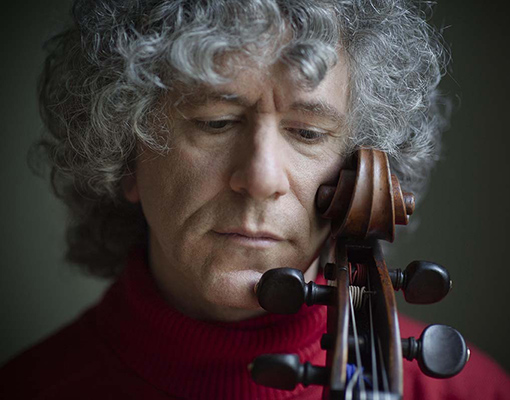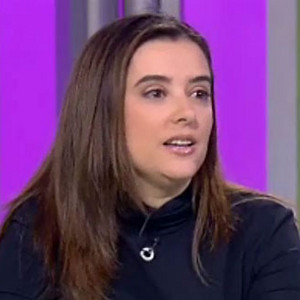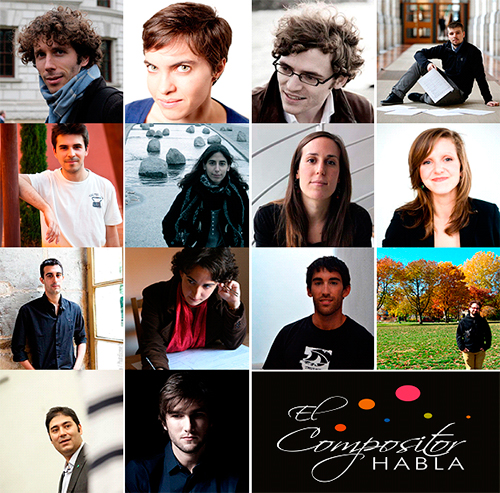Entrevistas
Interview with Steven Isserlis
18/09/2018
He is one of the most consistent, surprising and original voices on the cello scene and undoubtedly a cellist worth following. I have talked to him and this is what he told us.
"I think that music is in a fascinating state today"
 1. Ruth Prieto: What are your musical roots (real or imaginary)?
1. Ruth Prieto: What are your musical roots (real or imaginary)?Steven Isserlis: I am lucky enough to come from an extremely musical background. On my father’s side, the family tree includes the composers Mendelssohn, Moscheles and Meyerbeer, on my mother’s the composer Lewandowski. My grandfather, Julius Isserlis, was a well-known pianist and composer, whose teachers included Taneyev and Widor. My father was himself a keen amateur violinist, my mother a piano teacher; and both of my sisters, Annette and Rachel, are musicians.
2. R.P.: What inspires you as a cellist and as a person and why?
Steven Isserlis: The great (and sometimes the less-than-great-but-loveable) composers inspire me! and other interpreters whom I admire.
3. R.P.: ¿Have you got a composer of reference or someone who made a special impression on you as a cellist?
Steven Isserlis: My two greatest cello heroes were, and are, Pau Casals and Daniil Shafran; among composers, I have worked extensively with many, and always enjoyed the interactions.
I suppose that those I have worked with most are Kurtag, Thomas Adès and John Tavener, all of whom have had a big effect on my life – but there are several others too.
4. R.P.: What is your main obsession when working?
Steven Isserlis: Trying to understand the composer’s intentions
5. R.P.: We have the idea, probably very old, of what a concert is: people playing and people listening. How do you imagine “concerts” in the XXI century?
Steven Isserlis: Just the same as now – I don’t see anything wrong with the format!
"We just have to welcome more and more people"
6. R.P.: How do you go about putting together a new work, could you describe your creative process?
Steven Isserlis: Well, if I am learning a new work, I am likely to sit at the piano for many hours, fumbling through it, trying to understand the shape and form, and through that, the meaning. Afterwards, I move to the cello, and try to master the notes! But it’s much easier if I already know what I want to say before I begin trying to say it.
7. R.P.: ¿How do you see the contemporary music scene today? Any favorite’s composers?
Steven Isserlis: Many! I think that music is in a fascinating state today – so many astonishingly varied characters, speaking in utterly different voices. There is no longer an established language for music – which may be challenging for both composers and listeners, but which opens up fascinating possibilities.
8. R.P.: What are you working on now?
Steven Isserlis: I recently fell in love with Schumann’s 2nd violin sonata, and spent some of the summer arranging it for cello – what a masterpiece it is!
Over the past week, I’ve been working with some friends on Faure’s last work, his string quartet, down at IMS Prussia cove. Having struggled with the piece for many years (despite Faure being one of my all-time favorite composers), I now feel that I can understand it finally. And again – I’m in love! (With the quartet, I mean.)
9. R.P.: What would you like to do as a cellist that you have not been asked to do yet?
Steven Isserlis: Well, there are a few pieces from the solo repertoire that I have not yet recorded (the Dutileux concerto, for instance), which I would love to commit to disc; also, many chamber works. And there are other ideas I would love to fulfil – such as a big project (DVD, app, website, or whatever) about the Bach suites, and a recording of John Tavener’s late works.
10. R.P.: What are your upcoming projects?
Steven Isserlis: I have programmed a series of four concerts at the Wigmore hall this season, involving several of my greatest musical friends, dedicated to the chamber music of two of the composers to whom I feel closest, Faure and Schumann. I’m also looking forward to directing the Lucerne symphony orchestra in Mozart’s great a major piano concerto, k488, with Radu Lupu as soloist; to doing several performances of all Beethoven’s music for piano and cello with Robert Levin on the fortepiano; and then there’s the concert for –groan – my 60th birthday. I am going to try to cheer myself up by making music with several of my favorite musicians at the Wigmore hall.
More information at Steven Isserlis' website
Photo by Isserlis Jean Baptiste Millot courtesy of the cellist
Biblioteca
Destacamos ...
Nueva Sección Directorio
dedicada a la promoción de compositores, intérpretes, instituciones y editoriales.

dedicada a la promoción de compositores, intérpretes, instituciones y editoriales.



